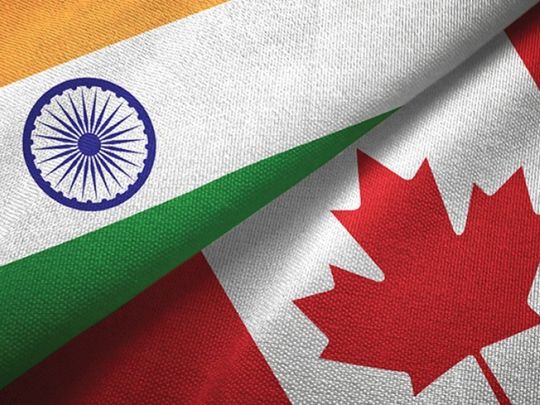
Sanjay Kumar Verma, India’s High Commissioner to Canada and a veteran career diplomat, has become only the third Indian ambassador to ever be expelled from anywhere. (The other two were from Pakistan in 2019 and Fiji in 1987.) That tells you how much Canada has escalated the diplomatic row against India. Equally, it tells you of a grave failure of Indian diplomacy and statecraft.
In a world of uncertainties we can be certain that Justin Trudeau is going to lose the next election even if his prime ministership survives until then. It seems like a foregone conclusion that Pierre Poilievre will be the next prime minister of Canada by this time next year.
The recent escalation by the Trudeau government has made it difficult to restore Indo-Canadian ties even after Poilievere takes over.
No matter how much the Canadian government says the investigation over the alleged Indian hand in the killing of Hardeep Singh Nijjar in June 2023 is an autonomous police affair, the diplomatic escalation is a choice that Prime Minister Trudeau has made.
You have to be really innocent to think this choice is not motivated by his political compulsions, especially since Jagmeet Singh’s New Democratic Party withdrew its support to Trudeau’s government.
After Kanishka
What is sad here is that the entirety of Indo-Canadian relations are at risk. We are talking of hundreds of thousands of people potentially unable to travel home due to visa delays.
We are talking of billions of dollars of investment money feeling unsafe, and huge losses to Canadian universities earning from Indian students, and so on. The India-Canada relationship is not limited to those who fled India in the 1980s, but sadly over the last few years it has come to be increasingly defined only by that equation.
The Indo-Candian relationship has been a symbiotic one, and India moved past the Canadian negligence that led to the 1985 bombing of an Air India plane named Emperor Kanishka. All 329 on board died, most of them Canadian citizens. Yet this grave act of terrorism is hardly remembered by the Canadian government.
The Royal Canadian Mounted Police did precious little to prevent the bombing despite advance intelligence inputs from both Indian and Canadian intelligence. The suspects were acquitted, and the judge noted that authorities had destroyed evidence that could have led to their conviction.
If India moved past the Kanishka bombing to deepen Indo-Canadian ties, the clock has been turned back over the last year or so.
Indo-Canadian relations are being held hostage by the Khalistan separatists in Canada. The failure here is by the respective governments. The Indian government has over-obsessed itself over the Khalistanis in Canada given that Khalistan militancy is not a real threat in Indian Punjab today.
Moving on
Sooner or later, Canada and India will have to move on from this sordid episode. Prime Minster Justin Trudeau is risking the entire Canada-India relationship over the Nijjar killing, about which he has himself admitted they have no hard evidence.
India is the fastest growing large economy in the world and Canada needs the investment opportunities India offers.
Equally, India needs those investments, along with Canadian expertise in technology and renewables. Bilateral merchandise trade between the two countries is at $8.4 billion and there is a lot more potential, including for a free-trade agreement.
If Canada needs the Indian labour it imports, India needs countries like Canada to take Indian immigrants to reduce the pressure of unemployment at home. These immigrants in turn send remittances that contribute to the Indian economy.
India is the largest recipient of diasporic remittances in the world. Ranked 129th in the world in per capita income, India can hardly afford to alienate countries that take large numbers of Indian immigrants. Labour is our export and proudly so.
For the moment Canada is not happy about mass immigration due to inflation and housing crises, both of which Trudeau has been criticised for mishandling.
Yet in the long run Canada cannot afford to de-link itself from India as a supplier of English-speaking skilled, educated human capital. Indian companies also create mass jobs in Canada, especially in the IT sector. Companies like Infosys, Wipro and TCS have a large presence in Canada.
Canada is a G7 country and both India and Canada are democracies in the G20. It makes no sense for the two to have a relationship breakdown in an already fractious world.
Both the Indian and Canadian governments presently sound as if they can do without each other. Yet the relationship is worth saving.










